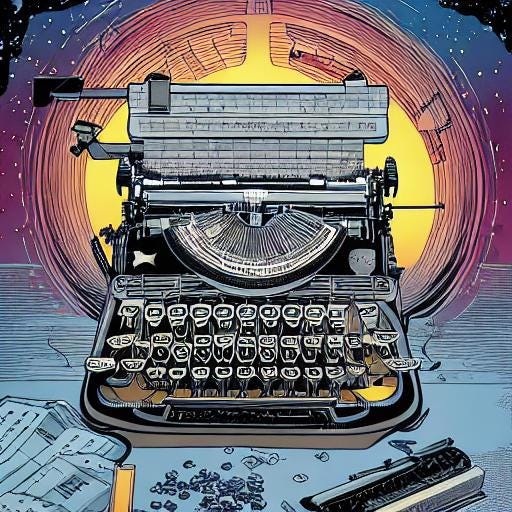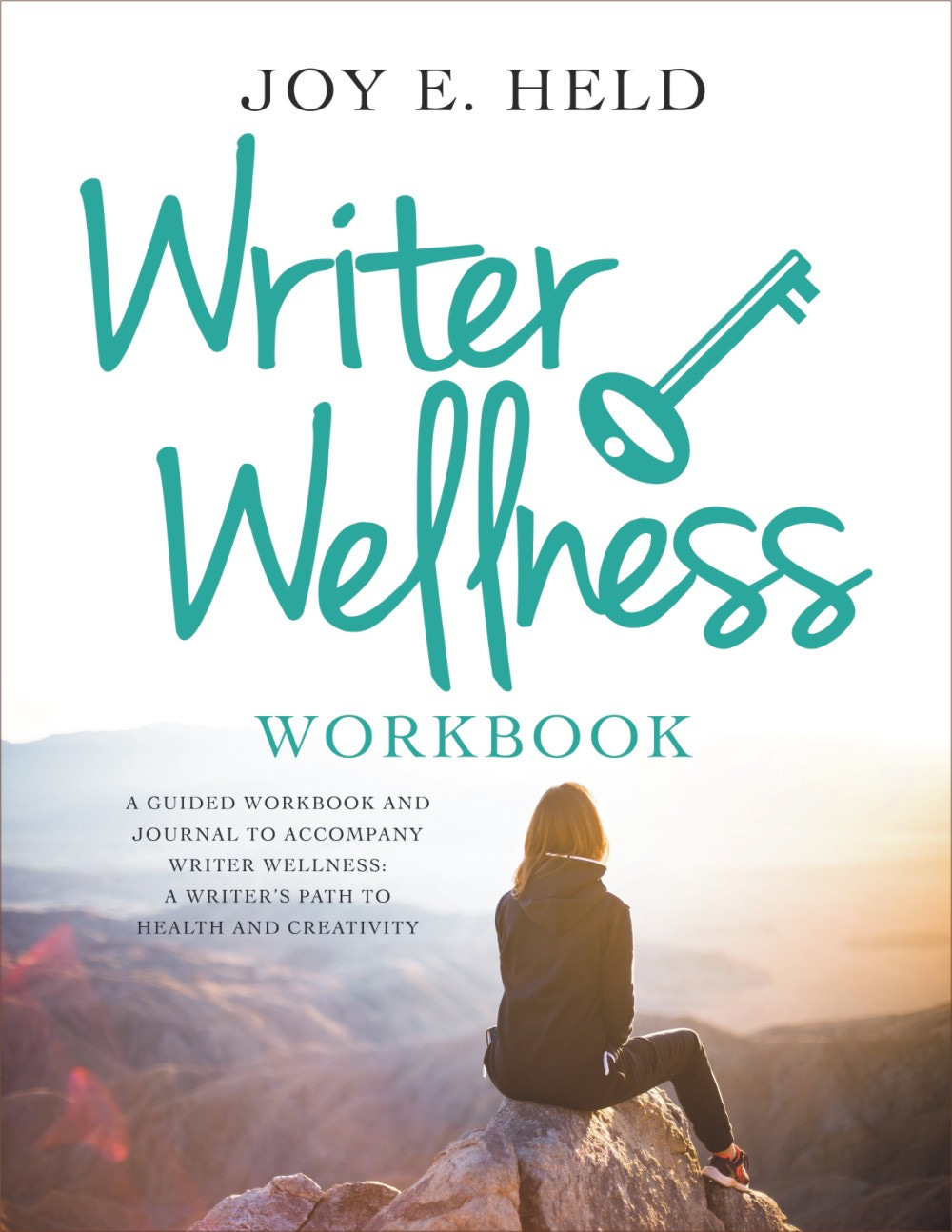My WRITEDAY is a subscription box program that delivers curated products from authors, creators, and small businesses to writers and readers in the US. It’s unique in that many products are sourced from writers who are also crafters and artisans. Each box delivers a writing craft book of the month and 3-7 items associated with the key concepts (journaling, fitness, relaxation, nutrition, and creative play) of Writer Wellness, my flagship program and book (Headline Books, Inc. 2020.)
This is not a science lesson on what sleep is or isn’t. If you want some solid resources written in plain Standard English, there are a few links provided below in this lesson. You are probably aware of how sleep affects every aspect of your life, and you assuredly know that you are a better everything, including a writer, if you get some damn sleep. This is a conversation that presents ideas on how as a writer you need sleep not only for the health benefits but for the access to your dreams.
My first romance novel was a gift to me from a random dream I had that was so intense, so colorful, so detailed, and so annoying during waking hours (I couldn’t stop thinking about it,) that I began telling it to family, friends, and colleagues. I described the dream over and over until a friend said, “That reminds me of a story called ‘A Message to Garcia.’” Once she explained what that was, I knew in my gut (intuition) that I had to do more research.
The research led me to a nineteenth-century book written by Elbert Hubbard. It was a story about the bravery of a sailor named Lt. Andrew S. Rowan during the Spanish-American War in 1898. Lt. Rowan took a message from U.S. President William McKinley to Cuban General Calixto Garcia saying that American armed forces were ready and prepared to aid Cuban insurgents in securing independence from the ruling nation Spain. My novel Message to Love published by The Wild Rose Press in 2010 is set against this heroic war event. I believe in dreams as messengers from the unconscious and that the information is valuable and usable to me as a writer. No matter how kooky it sometimes seems. That’s why I write some dreams down in my journal.
Stephen King’s story about a crazed fan “rescuing” her favorite writer and then torturing him in a remote farmhouse came to him fully formed in a dream he had on a plane bound for London in the early 1980s. He fell asleep en route and woke up with the kernel of the story prominent in his wakefulness. He wrote down what he could remember on “an American Airlines cocktail napkin” (165) and the rest is Misery history. Dreams supply lots and lots of juicy fodder for journaling and storytelling. It pays to put constructive effort into getting 7-8 hours of sleep for the writing fuel of the dreams.
Plenty of other writers credit dreams (both day and nighttime) to providing interesting and useful material for turning into stories. After all, fiction is lies. You’ve heard that before, I hope, and therefore dreams qualify as sources for fiction because dreams aren’t real either. Both activities answer the writer’s perpetual and inspiring question “What if?” What if you’re a person who doesn’t remember their dreams once they’re awake? That’s fine. It’s all made up, remember? Make up your dreams if you want to. You can do this with a semi-conscious practice the King calls “creative sleep” and that writer Fred White notes as “productive daydreaming” (45).
King’s description of “creative sleep” is practical and easy to recognize as something akin to being in the creative “flow” zone or daydreaming. See what you think.
“I think we’re actually talking about creative sleep. Like your bedroom, your writing room should be private, a place where you go to dream. Your schedule—in at about the same time every day, out when your thousand words are on paper or disk—exists in order to habituate yourself, to make yourself ready to dream just as you make yourself ready to sleep by going to bed at roughly the same time each night and following the same ritual as you go. In both writing and sleeping, we learn to be physically still at the same time we are encouraging our minds to unlock from the humdrum rational thinking of our daytime lives. And as your mind and body grow accustomed to a certain amount of sleep each night—six hours, seven, maybe the recommended eight—so can you train your waking mind to sleep creatively and work out the vividly imagined waking dreams which are successful works of fiction.” (157)
Creative people are prone to vivid dreaming and are more apt to remember their dreams once they are awake. Julia Cameron claims in The Artist’s Way that blasting through creative blockage tends to make day and night dreams more accessible because they are “stronger and clearer” (84) due to the simple fact that you are more relaxed and accepting of your creative intuition. The less blocked you are, the more you dream, and the more you recognize the value of listening to your crazy hunches and not-so-quiet dream messages.
This rolls us right back to the concept of openness and being available to ideas as they float around in the collective atmosphere that Elizabeth Gilbert stresses is a real environment. The ideas are out there just waiting on us to catch and make use of them, but sometimes the only way the idea can get inside our heads is through a dream.
You can actually ask your brain to remember your dreams, but you may have to make this request several times in your mind, in writing, and in your daytime speaking before it actually happens. Keeping a dream journal handy or just a notepad to jot down words when you wake up will begin to train your mind to remember and allow you to recall dreams. Doing this with daydreams, great and small, also teaches the brain to recollect dreams. If you typically do not remember your dreams or haven’t for some time, this process may take a while before it kicks in.
My WRITEDAY subscription box launches in August! Stay tuned for your opportunity to be an Early Bird subscriber and receive a special gift in your first box.
I hope your WRITEDAY is fantastic.
Joy
Women with clean houses do not have finished books. ~Joy E. Held
Link Bucket about dreams.
https://www.brainpickings.org/2013/10/14/stephen-king-on-writing-and-creative-sleep/
https://www.brainpickings.org/2013/12/16/writers-wakeup-times-literary-productivity-visualization/
https://www.latimes.com/archives/la-xpm-1999-jul-18-mn-56942-story.html
https://lithub.com/what-to-the-writer-are-dreams/
Advertisement
AVAILABLE NOW FOR PRE-ORDER: WRITER WELLNESS WORKBOOK
Works Cited
Cameron, Julia, and Mark Bryan. The Artist’s Way: A Spiritual Path to Higher Creativity. New York: Jeremy P. Tarcher/Putnam Book, 1992.
Gilbert, Elizabeth. Big Magic: Creative Living Beyond Fear. New York: RiverHead Books, 2015.
King, Stephen. On Writing: A Memoir of the Craft. Scribner, 2000.
White, Fred. Where Do You Get Your Ideas? Cincinnati, OH: Writer’s Digest Books, 2012.
Please note that this site may contain affiliate links to Amazon. I may earn a small commission if you click through the link and make a purchase. Thanks for all the support!




